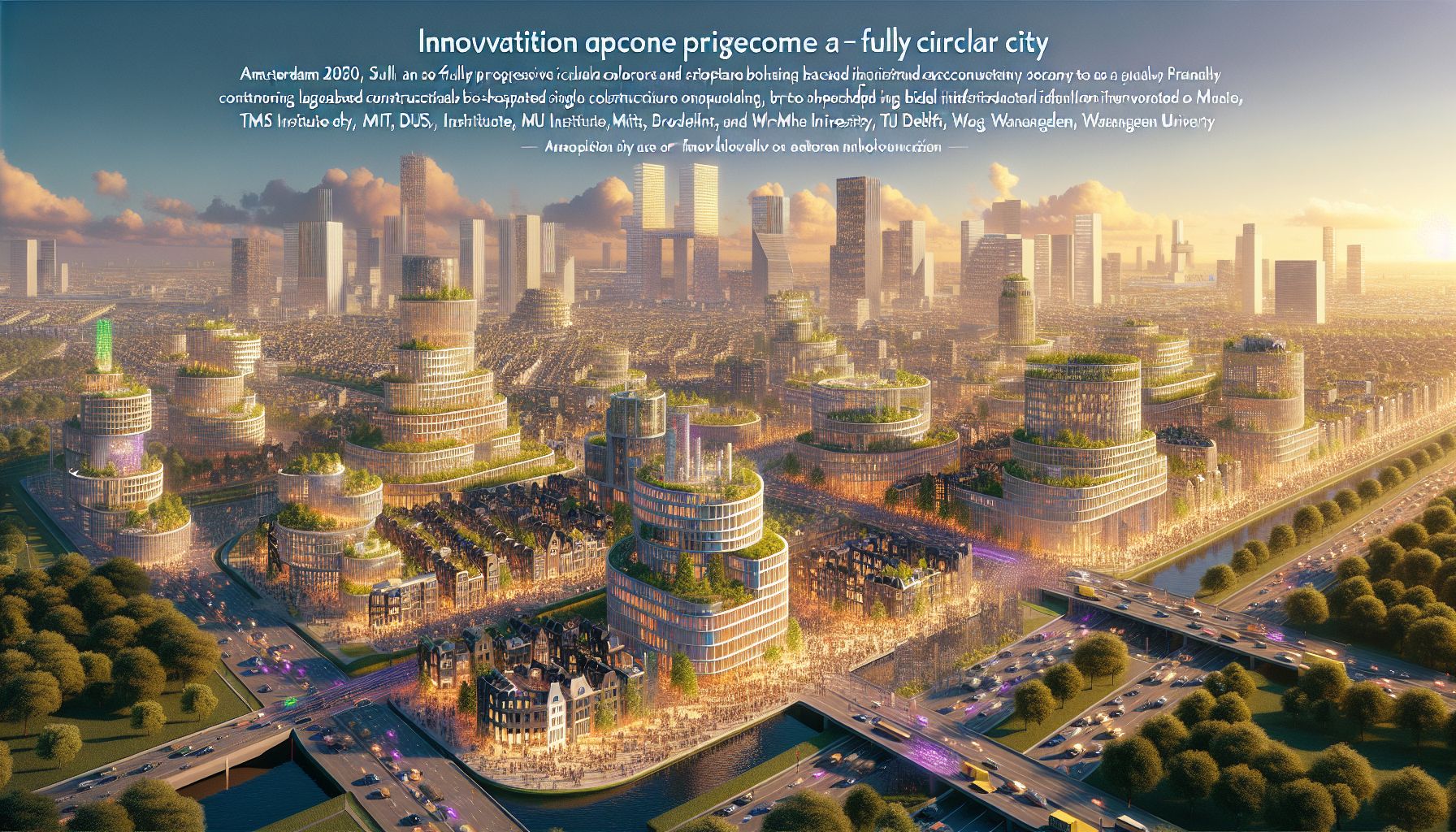Amsterdam's Bold 2050 Vision: AMS Institute Leads Circular City Revolution

Amsterdam, Monday, 2 December 2024.
In a groundbreaking initiative, AMS Institute collaborates with MIT, TU Delft, and Wageningen University to transform Amsterdam into a fully circular city by 2050. The program focuses on innovative solutions including biobased construction and digital infrastructure, marking one of Europe’s most ambitious urban sustainability projects. The CURe program, launched in December 2024, represents a comprehensive approach to redesigning urban processes, from production to infrastructure management.
The Vision of a Circular Amsterdam
The Amsterdam Institute for Advanced Metropolitan Solutions (AMS Institute) is spearheading an ambitious project known as the CURe program, which stands for Circular Urban Regions. This initiative aims to transform Amsterdam into a fully circular city by 2050. With a focus on biobased construction, carbon accounting, and digital infrastructure, the program seeks to integrate circularity into the very fabric of urban life. The collaboration involves prestigious research institutions like MIT, TU Delft, and Wageningen University, aiming to create a model that other cities can emulate.
Strategic Collaborations and Their Impact
The success of the CURe program hinges on strategic partnerships. By working closely with the municipality of Amsterdam and leveraging the expertise of its partner universities, the AMS Institute is creating a robust framework for sustainable urban development. The initiative encompasses a wide range of activities, from research and development to practical implementation, all designed to achieve the ambitious goal of complete urban circularity. This collaborative effort is expected to lead to groundbreaking innovations in sustainable urban planning, with benefits extending beyond Amsterdam to influence global urban sustainability practices.
Challenges and Opportunities in Urban Transformation
The path to a circular Amsterdam is fraught with challenges, including the need to overhaul existing infrastructure and foster a cultural shift towards sustainability. However, the opportunities presented by this initiative are equally significant. By focusing on circular economy principles, the program not only aims to reduce waste but also to create economic opportunities through sustainable business practices. The CURe program is designed to serve as a testbed for new technologies and methodologies that can be scaled and applied to other urban environments, potentially setting a new standard for city planning worldwide.
A Model for Global Urban Sustainability
As the CURe program progresses, it is expected to generate valuable insights into the practicalities of implementing circular economy principles in urban settings. The lessons learned from Amsterdam’s transformation can inform policy decisions and inspire similar initiatives in cities around the world. By 2050, the aim is not only to have transformed Amsterdam into a circular city but also to have established a blueprint for others to follow, demonstrating the tangible benefits of sustainable urban living. This initiative underscores the critical role of innovation and collaboration in addressing the complex challenges of urban sustainability.

